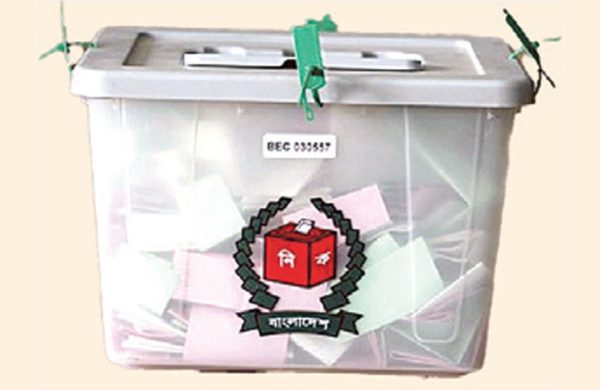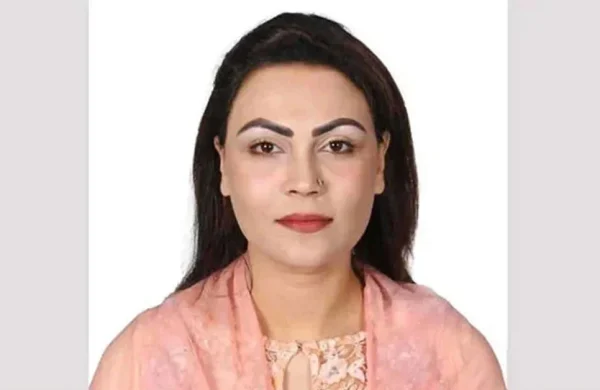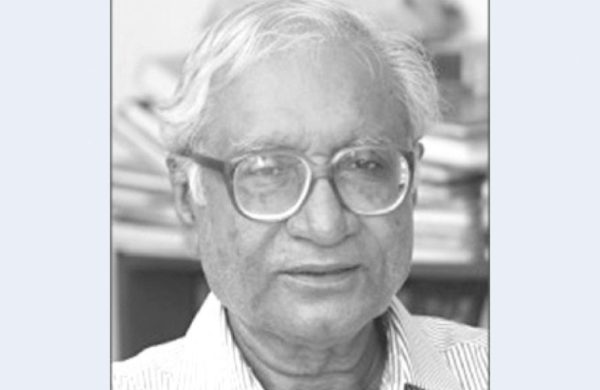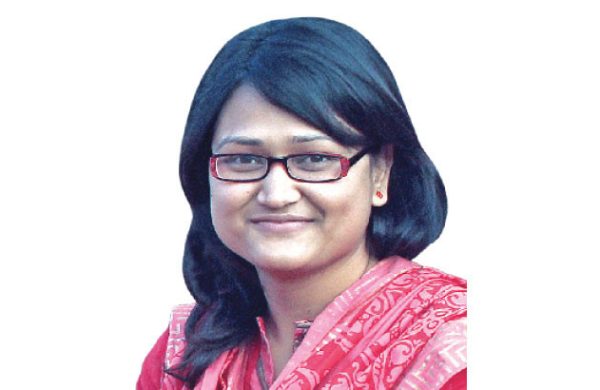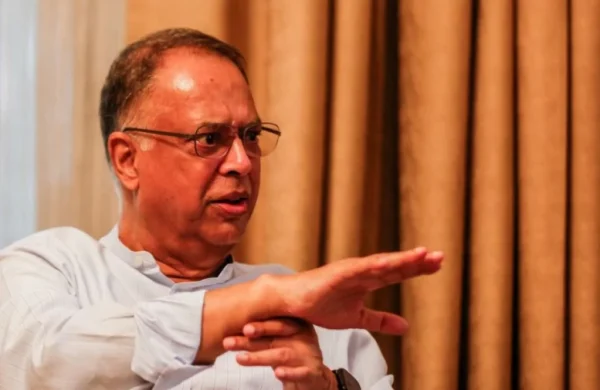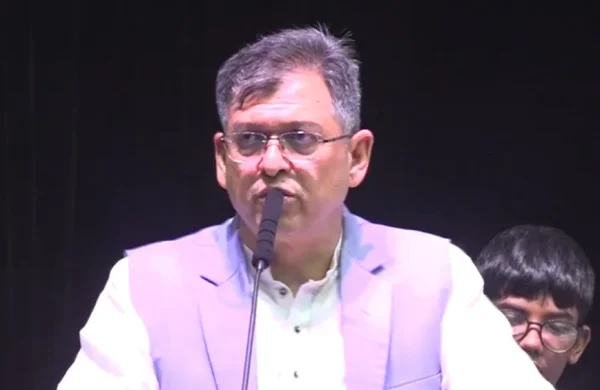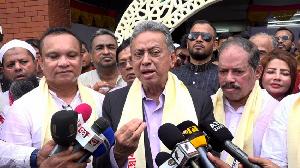Cleaning Heart, but Whose!
- Update Time : Thursday, August 28, 2025

—Mahfuzur Rahman—
The political change in Bangladesh since the July-August mass upsurge has influenced the landscape of regional politics in South Asia, as well as the strategic equation of the entire region. No wonder that Pakistan has, once again, revived its posture and redoubled its efforts to benefit from the changes. Excited by the changes, Pakistan did all in its power to improve relations with Bangladesh, which had been tense for the past fifteen years because of Bangladesh’s proximity to India, and insisted it join in the formation of a new strategic equation. The prime minister of Pakistan, on the first opportunity, had telephoned and hailed the chief advisor of the interim government of Bangladesh and had met him in New York. His gesture of warmness was followed by other ministers and secretaries, as well as by other ministries and departments in their respective work. First, the Pakistan foreign secretary took a visit to Dhaka. Afterwards, we have seen a flurry of visitors. The latest was Deputy Prime Minister and Minister for Foreign Affairs Ishaq Dar. And anyway, his visit showed exactly where we stand in the eyes of the Pakistanis.
The visit went all well. He willingly met the representatives of the three political parties that he probably thought matter most in present-day Bangladesh politics. The politicians, too, met him with enthusiasm. He had meetings with his counterpart, Advisor Touhid Hossain, and paid a courtesy call on the chief advisor. These were all fine. The problem erupted when he addressed a section of the Bangladesh press. It was obvious that the pending issue of 1971 would pop up in such a visit, and it would be up to the charisma of the visiting leader how to handle the situation. I would say Ishaq Dar miserably failed this test. It would have been best for him to put a full stop after saying that the issue was resolved through the signing of the tripartite agreement of April 1974 and second by General Parvez Musharraf’s comment during his Dhaka visit of 2002. Instead, he brought reference to the religion Islam and indirectly advised us to clean our hearts. Here, it went all wrong. The media picked it up and portrayed him as a villain.
It is not easy to deal with a complex issue like this. It is complex because many other elements are tagged to this. It is true that there are pending issues. The tripartite agreement of 1974 is a good beginning, and this could have been bolstered in letter and spirit by subsequent reconciliatory measures and gestures. It was all expected that during the visit of Pakistani Prime Minister Zulfiqur Ali Bhutto in Dhaka following the signing of the tripartite agreement, he would acknowledge the atrocities committed by the Pakistanis during Bangladesh’s War of Independence in 1971 and seek an apology. Nobody knows what was in Bhutto’s mind. Many said that it was in his brief, but perhaps he had changed his mind after seeing the warmth of the Bangladeshi crowd in the streets. I would say he had missed a historic opportunity. He missed many such opportunities in his life and, thus, could not establish himself as a great politician.
The tripartite agreement was not something that Bangladesh cherished. Dr Kamal Hossain, the signatory of Bangladesh, later wrote about the constraints that he had to encounter and the words that he had failed to include. Therefore, for Bangladesh, the tripartite agreement had fallen short of expectation. Bangladesh was a new state. Naturally, Bangladesh had many limitations. It did not have adequate capacity to face such a scenario. But then, as a friend to Bangladesh, India should have upheld and protected its interests. Perhaps, in that particular case, India thought differently. However, an agreement is an agreement. Once it is signed, it is agreed upon. It does not necessarily reflect what one wants, but what the negotiated result is. Therefore, Bangladesh could settle with what fell short of its expectation if the subsequent measures could fulfil those. Unfortunately, it did not happen.
What exactly fell short in the tripartite agreement? First, it did not acknowledge that there was a genocide. It did not specify who committed this genocide; it did not clearly identify the perpetrators. Rather, it created an arbitrary fictional story titled ‘forgive and forget’. It means it failed to address and uphold the gravity of the incident of 1971 from the perspective of a Bangladeshi. In the interest of bringing in normalcy in the South Asian region, particularly between India and Pakistan, it has undermined the pain and grief of the Bangladeshis.
Now, is the onus on Bangladesh to respect the agreement of 1974 and ‘forgive and forget’ what had happened in Bangladesh in 1971? Or is it rational and logical to claim reopening a historic case of unfairness and seeking justice? It is fine that we need to abide by the instruments that we once signed. But I insist that in a civilised society, no grievance is time-barred, and seeking justice cannot be overruled by any deadline.
If we even consider the provisions of the said tripartite agreement, a question may be raised as to why Bhutto did not appeal to the people of Bangladesh to ‘forgive and forget’. His speech at Bangabhaban clearly fell short of that appeal. Therefore, it is not weird if Bangladesh still insists on the issue and considers it pending. I will not mention the other pending issues.
If Pakistan wants a better relation with Bangladesh, if Pakistan sees benefit in its closer relations with Bangladesh and if Pakistan feels the importance of Bangladesh in the evolving strategic equation of the region, the onus will remain on Pakistan to acknowledge the genocide that was committed by the Pakistani soldiers and seek an apology from the people of Bangladesh. There is nothing wrong with acknowledging a wrongdoing, if required, time and again. The Germans still do it, on behalf of the Nazis. This does not diminish the honour of the Germans but rather enhances their honour and dignity as a democratic, responsible and modern state.
At the same time, Bangladesh must understand that it is not beneficial for anyone to keep the wounds of the past alive, and for the sake of developing bilateral relations, the wounds of the past must be dried up, and we must look forward. A prosperous Bangladesh is the greatest and most dignified answer to any deprivation, injustice and oppression of the past.
————————————————————
The writer is a former Bangladeshi Ambassador


